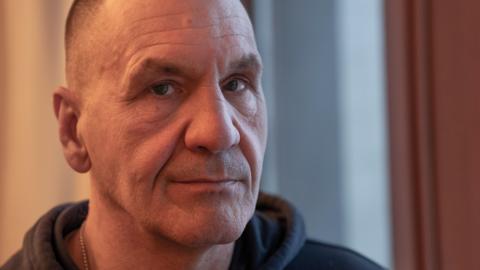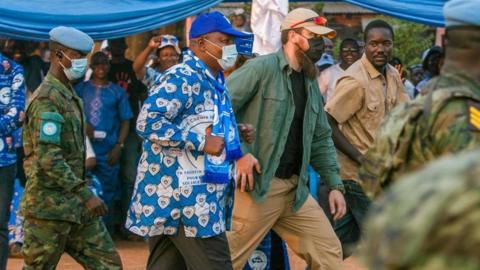Shugalei had visited Chad twice before, and notably held talks with Déby's campaign team prior to the presidential elections in May. He was also linked to the Russia House cultural centre in the capital, N'Djamena, which recently unveiled a new headquarters at a ceremony attended by Russian government officials.
Last year, US intelligence services said they had discovered that Wagner allegedly orchestrated a plot to assassinate Déby but failed to carry it out.
Mr Serwat suggests this may be why Shugalei was arrested.
Ms Ochieng says Chad may have been worried about Shugalei's potential to try and destabilise the country by spreading disinformation.
Shugalei's foundation has denied that he is a "Wagner spy", saying Shugalei "does not know anything in particular about Wagner Group's activities in Africa and only knows general details about what it did previously".
Russian-backed social media content, TV stations and news sites are being deployed to spread a pro-Russian agenda and disinformation, especially in Africa, according to analysts.
Examples include Afrique Media TV which broadcasts from Cameroon as far afield as CAR, Ivory Coast, Mali, Burkina Faso, Niger - and is also on YouTube where it has thousands of followers, and enjoys a large Facebook following.
Shugalei himself teases his presence in various African countries, sometimes sharing short, low-budget, vlog-style Telegram videos that make clear his love of showmanship.
Of the video content aimed at Africans, many take on a fable-like appearance – one, called LionBear - shows a bear (which symbolises Russia) running across the globe to defend a lion (his Central African Republic friend) from the malign influence of hyenas.
"I don't think people necessarily are won over by these videos – people think it's funny, a joke," says Ms Ochieng.


